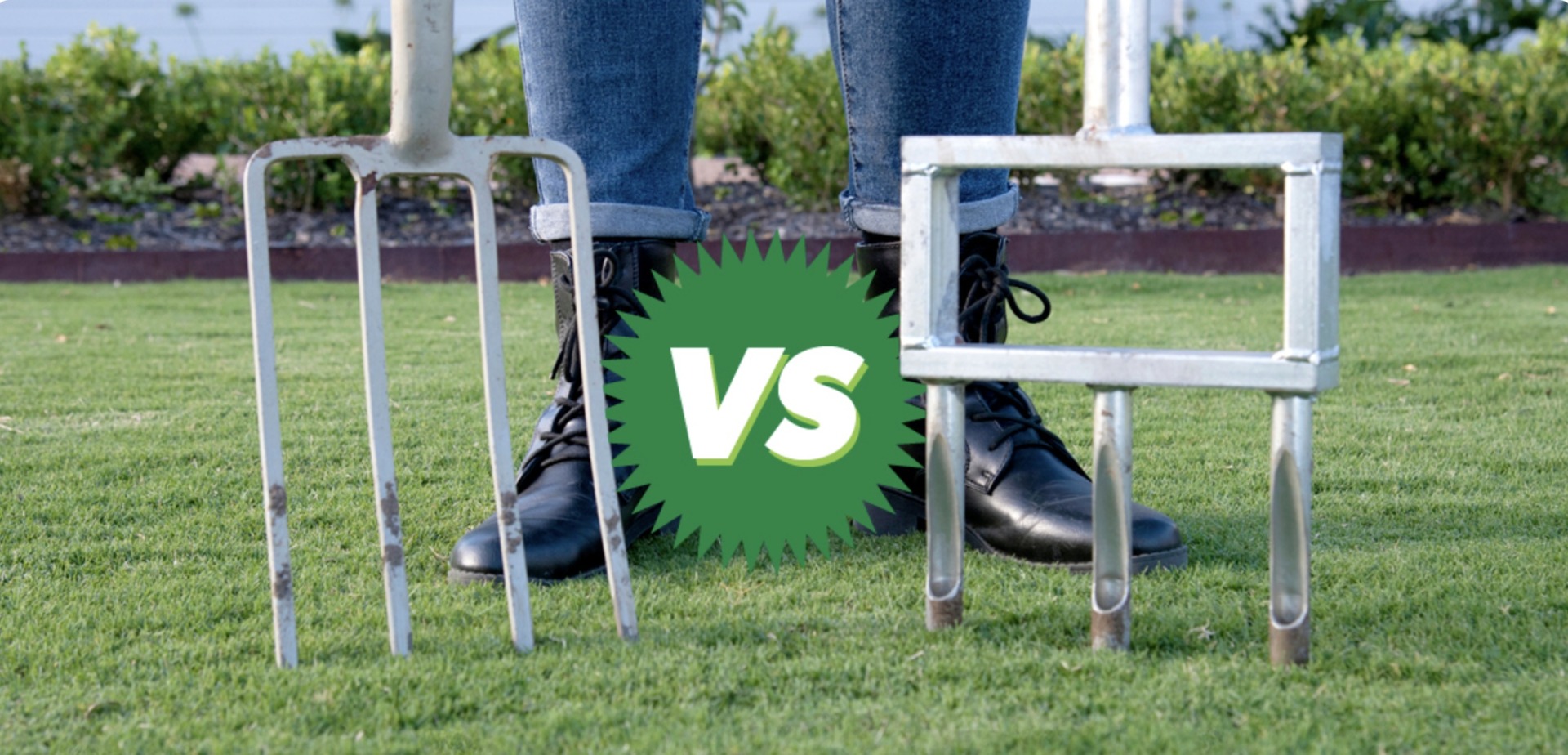Should I core aerate my lawn? Or are solid tines ok?

19 April 2022
Your aerating questions answered
What is aeration?
Perforation of the soil to allow air, water and nutrients to penetrate the grass roots.
Why do I need to aerate my lawn?
Aeration helps the roots grow deeply and produce a stronger, more vigorous lawn. The main reason for aerating is to alleviate soil compaction. Soil compaction limits the amount of nutrients and water to penetrate the roots of your lawn.
What is solid tine aeration?
Solid tine aeration involves the punching of holes into the lawn with solid metal spikes.
A smaller area of lawn can be aerated manually with aerating sandals (sandals with spikes that aerate the lawn as you walk) or a sturdy garden fork. Simply insert the fork into the lawn and wriggle it back and forth to fracture the soil profile. Aim for a spacing between the holes of around 8 – 10cm. In order to achieve adequate aeration, you may need to go over the area twice in a different direction each time.
You can hire specialised aerators if you have a large lawn. A spiked roller is also useful for lawn aeration for incorporating lime, gypsum, or coarse sand into the profile to improve drainage or pH.
Solid tine aeration does not involve the removal of soil, so if the ground is particularly hard and compacted, we recommend you look at core aeration.
What is core aeration?
Unlike regular aeration, where solid tines simply punch holes in the ground, core aeration removes a plug of soil from your lawn at the same time. Plug or core aerators do this by using hollow tines that puncture the surface and then pull the plugs from the ground on their way back out. The process of coring helps create more space in the soil for your lawn to breathe, absorb nutrient and increases soil permeability.
Core aeration can be done with manual hand tools but is much easier to undertake with a specialised coring machine. The primary reason we need to undertake aeration, core aeration in particular, is to alleviate issues related to compaction.
For core aeration, we recommend using the Reel Solutions 3 Tyne Aerator.
When should I remove cores from my lawn, rather than solid tine?
When there is a lot of compaction or soil improvements are required. If an area suffers from heavy wear and is consistently showing signs of stress, this is where core aeration can be ideal. This is why golf courses and sporting fields undertake core aeration sometimes a couple of times a year. With the high amounts of foot traffic and wear, coring allows groundskeepers to keep their turf surfaces much healthier by creating more room for roots to grow. This combined with topdressing, helps to achieve a nice smooth putting or playing surface.
If you are looking for that perfect finish for your home lawn, then core aeration is certainly something you should also consider as part of your lawn maintenance program during spring. After coring your lawn is a great time to top dress with washed river sand. The sand will fill the holes and enable air and water to penetrate due to its free draining, open structure.
What if the ground is too hard?
A good deep watering a few hours or a day prior to aerating can help soften the soil making it easier for the tines to penetrate. It can also be a perfect time to aerate after you have experienced rain.
Think before you aerate!
Always remember when using either a solid or hollow tine to make sure that you are not doing so in an area where you are likely to hit any underground piping or irrigation. If you have an Automower with guide wire for the parameter, these too need to be avoided.
As always, if you have any more questions please don’t hesitate to contact us for free expert advice on 1800ALLTURF (1800255873) or 07 5543 8304.
WOULD YOU LIKE MORE INFORMATION?
Contact us for expert advice, or come & say hi at our office in Tamborine!






